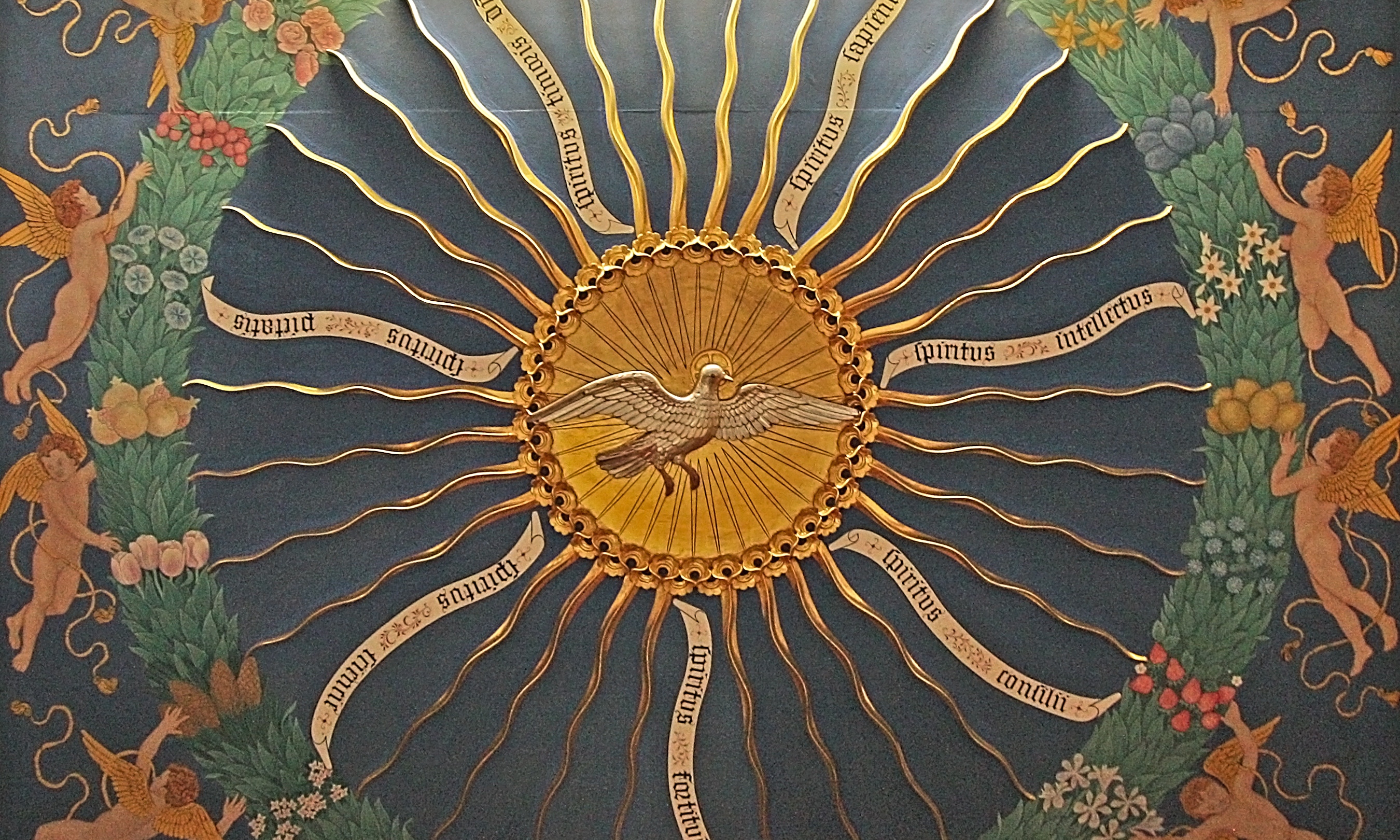In these days leading up to Pentecost, the Church, following the example of the Apostles, prays for the Holy Spirit to bestow His gifts upon us, in order to “lead [us] into all truth” (Jn 16:13) and bring us all into fuller fellowship with God. But what exactly are these gifts of the Holy Spirit, and what do they do for us? In other words, how does the Holy Spirit, whose coming upon the nascent Church we celebrate this Sunday, operate in our daily lives?
This topic was a major source of debate among theologians in the Middle Ages, as some scholars thought that the gifts of the Holy Spirit were more intense versions of the infused virtues (like a stronger faith), while others, such as St. Thomas Aquinas, said that they lead us to superhuman acts, beyond the virtues (like an insight into the mind of God). But to resolve this medieval dispute, let us look to an example from contemporary pop culture.
One need look no farther than Disney’s animated “instant classic,” Frozen, which has made its mark on everything from costumes and theme park rides to, naturally, the annual Disney on Ice traveling show. Since, presumably, anyone who has intended to watch this ubiquitous movie has done so, I find no risk of spoiling the ending to illustrate the point.
The main premise of Frozen is that Elsa, the princess of the Norway-like locale of Arendelle, is born with a power to manipulate ice and snow, but which she struggles to control, often causing harm to others, including her younger sister, Anna. Due to the lack of an X-Men Academy in her kingdom, Elsa is forced to keep her power under wraps, until the day of her coronation as queen, when she inadvertently places her kingdom under a deep freeze and flees to the surrounding hills.
Elsa’s eventual mastery of her glacial ability serves, as my classmate Br. Gregory pointed out last year in a First Things article, as an example of cultivation of virtue. Far from giving license to act solely according to one’s passions and impulses, the film provides an example of harnessing and ordering them for the goal of real human flourishing. But while Elsa can master the constructive aspects of her freezing powers (such as building an ice palace during the “Let It Go” sequence), she has no such control over the destructive side: she cannot prevent herself from further injuring Anna, much less lift her frosty curse over the kingdom. In short, while Elsa can develop the virtue on her own, she needs some additional help to act in a superhuman way to save the people, for as the chief troll tells her, “Only an act of true love can melt a frozen heart.”
This line recalls a verse from the Sequence sung at the Mass of Pentecost Sunday:
Bend the stubborn heart and will;
Melt the frozen, warm the chill;
Guide the steps that go astray.
As we acknowledge our dependence on the Holy Spirit, who is the Love between the Father and the Son, to thaw our own frozen hearts, so Elsa looks to the true love that can “fix up” each of us, as the trolls sing. But rather than the romantic love that Anna expects to heal her (and would make this end like many other Disney films), only a higher love can restore her: namely, Anna’s act of self-sacrifice to save Elsa’s life from attackers, and Elsa’s tears of compassion that bring Anna back to life.
By coming to know this love and acting on it, Elsa is then able to reverse the curse and restore seasonable weather to Arendelle. Just as her encounter with the greatest love (see Jn 15:13) enables Elsa to do things that she previously could not by her own powers, even when properly developed, so the gifts of the Holy Spirit prepare us to do things beyond our natural capacity: fortitude to endure trials with the strength of God; counsel to take God’s advice on making major life decisions; wisdom to order all things sweetly (cf. Wis 8:1) and love them all in relation to our love for God; and the like. As the Catechism of the Catholic Church describes the gifts,
They complete and perfect the virtues of those who receive them. They make the faithful docile in readily obeying divine inspirations. (CCC, 1831)
Thus, as the Catechism attests, and as the characters in Frozen provide an analogy, the love of the Holy Spirit endows us with gifts that dispose us to the motions of the Spirit and enable us to act in a superhuman manner—beyond that of the virtues, as St. Thomas writes—in order to save our souls and those around us.
As our Dominican Province celebrates the ordination of a new class of priests today, let us pray that they may always be docile to the movements of the Holy Spirit to accomplish the work of God in their ministry. And as we prepare to celebrate Pentecost, let us all turn to the Holy Spirit for guidance, that we may cooperate in the divine plan of salvation, our frozen hearts being warmed with the ardent love of God.
✠
Image: Fr. Lawrence Lew, O.P., The Gifts of the Holy Spirit







